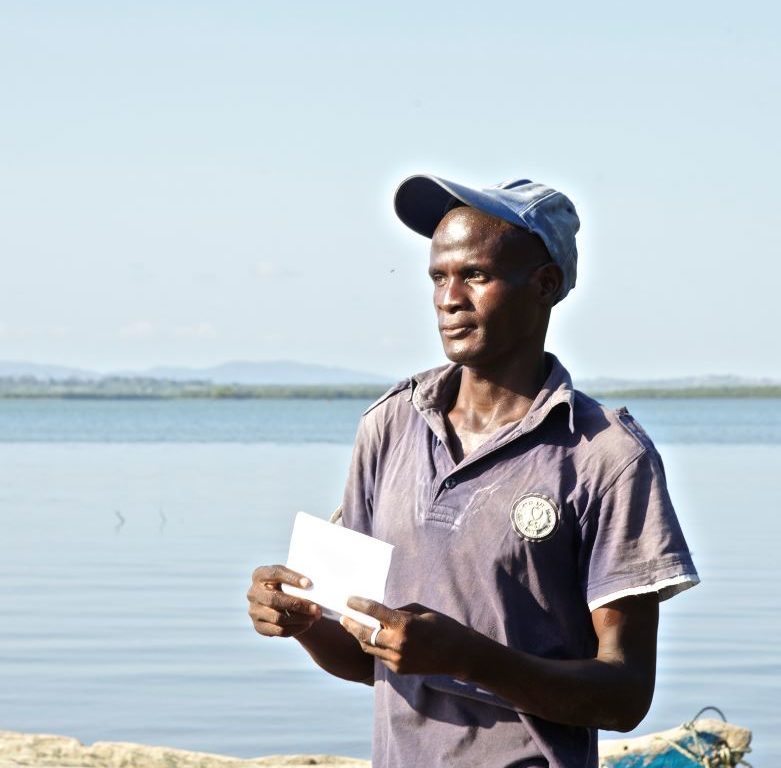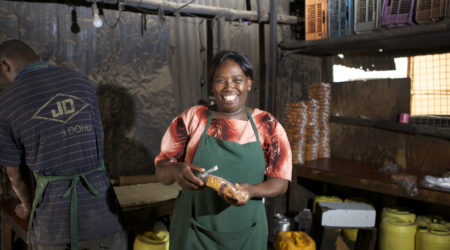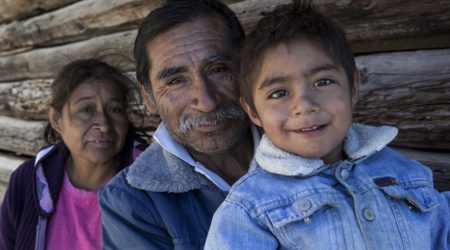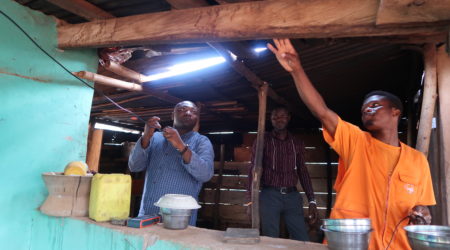Corona Case Studies: Kibarua crunch

Originally posted on the FSD Kenya Website, April 14, 2020
William, 39, hunts for earning options in Mombasa
William lives in a small house in an informal settlement in Mombasa. When we saw him last in 2015, he had recently married his girlfriend. William, his then wife, and her child from a previous relationship were happy and looking towards the future. They were saving together, planning to build rental houses.
When we spoke with him last week, things had gotten worse. For one, he split with his wife and was living alone again. His income had started to fall, even before the virus. William’s income came from selling water around the community. “I used to sell a 20 litre jerrican of fresh water at Ksh 40 shillings [about $0.4], but some individuals set up water tank businesses selling the same water at 20 shillings [$0.2].” This drove him out of business, and he went back to doing casual work carrying building materials and sometimes working on the construction of houses.
But when coronavirus arrived in Kenya, those opportunities became both scarcer and more competitive. Contractors are worried about contracting the virus, he claims, and have closed shop, putting many building projects on hold. Also, workers at local factories in the export processing zone (EPZ) are suddenly looking for the same hard-to-come-by vibaruas (wage labour).
By March 22, he said, he could tell things were not getting any better. He shifted gears to trying to supply building sites with sand harvested from the ocean below their settlement. Normally, he can sell a load for Ksh 800 ($8), but that goes up to Ksh 2,100 ($21) after it rains, and the sand is less saline. Last week, though, he only sold once the entire week. He got an offer for some casual work carrying construction materials, but the curfew made it impossible.
“Most of the time, building materials come in the evening, and when we start carrying them from the vehicle to the construction site, it’s past 7 pm. The road networks are not good enough for vehicles to drop them directly to the construction sites. Like yesterday, I was supposed to carry sand, but before we could start, it was already 7 pm. We had to rush home before the police officers caught up with us. When I went in the morning the tajiri (owner of job) was not at home. The chance at work passed me by, just like that!”
Apart from his falling income, he doesn’t see too much change in the community. No one can stay indoors during the daytime. The heat is too oppressive. He says that people are not particularly scared of getting the virus, since there haven’t been any reported cases in the area yet. Some people also believe that it’s a white man’s disease. If someone in the community gets sick, they’ll take it more seriously. That said, everyone is washing their hands more, and local businesses have set up washing points to help. While some in Nairobi report using more water and that water points are giving discounts and two-for-one deals on water to encourage washing, William is using the same as before: ten jerrycans (100 litres) of salt water and 10 litres of fresh water for the entire week.
But he has already cut back on food consumption. “I used to eat all the time before the virus came, but now I eat two times a day, and the second meal is usually leftovers of the first meal.” In other times if money was tight, he would take some goods on credit from the shopkeeper. But the shopkeepers also know that work is hard to find, and they’ve stopped giving out credit. They can’t stock up on credit right now either, he explains, so he understands their position. If you stay for more than three days without paying your debts right now, you’ll never borrow again, and you’ll soon be sleeping hungry. Friends have no cash to lend right now either.
As for him, he was planning to sell two of his chairs to get enough money to patch his roof and buy some food. The chairs are worth about Ksh 3,500 ($35), he says, but the best offer he can get is a “throwaway price” of Ksh 1,500 (Ksh 15). “I can’t do that.”
As his options dwindle, he looks back with remorse at 2017. When he and his wife split up, they shared the rental houses they built. He sold his share in 2017 for Ksh 95,000 ($950). He used some of the money to treat himself to a TV (Ksh 7,000 / $70), a stereo (Ksh 15,000 / $150), a DVD player (Ksh 2,500 / $25), and a bed (Ksh 5,500 / $55). He paid a Ksh 9,800 ($98) debt to the Kenya Power and Lighting Company (KPLC) too. He used Ksh 45,000 ($450) to invest in a leased sugarcane plantation. His stepmother promised to look after it. But she sold the sugarcane and kept the money for herself. He hasn’t talked to her since.
In the past, earning from his own sweat was always a viable backup plan. He sure wishes he had the farm or the houses now to navigate this difficult stretch.
This is part of a series of rapidly-produced blogs on how low-income Kenyans are coping with the changes in their lives induced by the novel Coronavirus (COVID-19). This research was implemented in partnership between BFA Global and FSD Kenya. Read more about the Kenya Financial Diaries project here. We will continue checking in with Diaries participants throughout the crisis. For the latest news and insights from this work, follow @FSDKe and @BFAGlobal on Twitter, as well as hashtags #Covid19DiariesKenya and #KomeshaCorona.



